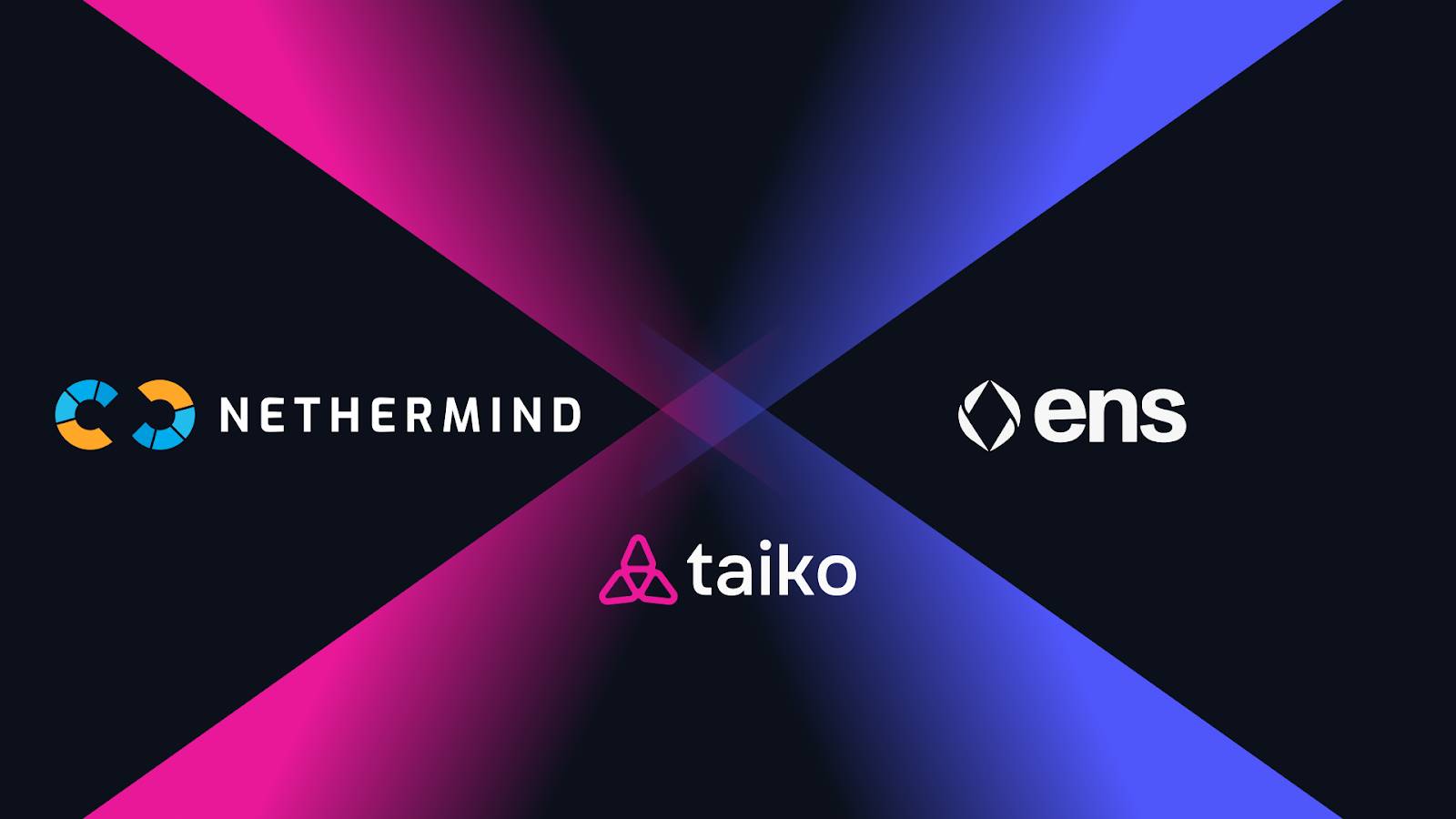Namechain will utilize the pre-confirmation technology that Taiko has pioneered on the mainnet to shorten state updates from "hour-level" to "second-level," addressing the critical performance bottleneck that ENS has faced for years on CCIP-Read.

The most widely used domain protocol in the Ethereum ecosystem, ENS, has officially chosen the Taiko technology stack as its dedicated decentralized naming service ZK Rollup scaling solution, which serves as the underlying foundation for Namechain.
Namechain will be deployed as a based rollup chain based on the Surge framework launched by Nethermind, while Surge itself is built on top of Taiko technology. This means that one of the most critical infrastructure protocols in Ethereum will directly adopt the architecture proposed by Taiko, which has already been successfully running in a production environment.
Why is this important?
ENS covers the human-readable address system across the entire Ethereum ecosystem. By initially choosing a based architecture based on Ethereum mainnet sequencers, it casts an important vote for what Taiko has been working on: based rollups can already operate stably in a production environment and will become the next phase of scaling that aligns with Ethereum's values.
Thanks to Taiko's technology, ENS does not need to go through the intermediate process of "gradual decentralization"; Namechain will be a fully mainnet sequencer-based rollup from day one.
Let the "data" speak, rather than staying in "theory"
Taiko is not just discussing based sequencing at a theoretical level; it has already been truly operational. Since the mainnet launch in May 2024:
Over 50 million transactions have been processed with zero downtime
Sub-second pre-confirmation has been running in a production environment, not just written in a white paper
Ethereum validators efficiently and stably execute packaging and sequencing on layer two
Large-scale performance has been achieved while maintaining decentralization
As ENS Labs wrote when deciding to move Namechain to Surge: "We have a rare opportunity to skip unnecessary steps in the 'gradual decentralization' path." They understand that they can build a based rollup using Surge and launch it with maximum decentralization from the start. ENS has not only chosen an infrastructure that is already operational in a production environment but has also selected an infrastructure that is highly aligned with its core mission.
The practical value brought by the Taiko Stack
By building on Taiko technology through Nethermind's Surge framework, Namechain will inherit:
Infrastructure Level:
Native Ethereum sequencing, with no centralized operator
Launching as a Stage 1 rollup, with a clear and credible Stage 2 evolution path
A technology stack that is on par with the Taiko mainnet and has been tested in real-world scenarios
Fully open-source, trustworthy, and neutral, not controlled by any single company
Technical Breakthroughs
ENS needs to provide almost instantaneous name resolution across multiple chains while ensuring strong cryptographic security guarantees. Traditional layer two architectures often force projects to make trade-offs between "decentralization" and "performance experience," while based rollups break this binary choice.
Namechain will utilize the pre-confirmation technology that Taiko has pioneered on the mainnet to shorten state updates from "hour-level" to "second-level," addressing the critical performance bottleneck that ENS has faced for years on CCIP-Read. Combined with TEE-supported proof mechanisms and based sequencing, Namechain will be able to provide institutional-level performance and stability under complete decentralization from day one.
All of this is made possible because Taiko is the first team to truly run pre-confirmation technology "on-chain."
What changes will this bring?
If core protocols like ENS, which have extremely high reliability requirements and are highly aligned with Ethereum's values, choose to build based on this technology stack, then other applications can certainly adopt it with confidence. Namechain sets a new benchmark for building without sacrificing decentralization.
This deployment also proves that based rollups are not just theoretically superior; they are the pragmatic choice for teams building critical Ethereum infrastructure when it comes to actual implementation.
For teams evaluating rollup solutions, Namechain serves as a directly referenceable implementation case; for the entire ecosystem, it demonstrates that the narrative of based rollups is no longer just a vision but a reality that is already happening and operational.
Next Steps
As Namechain progresses from internal testing to a public testnet (expected in the second quarter of 2026) and then to mainnet launch, it will validate on a larger scale what Taiko has already proven: scaling Ethereum does not require compromising on decentralization.
In this collaboration:
Nethermind is responsible for infrastructure operations and the Surge framework;
Taiko provides based sequencing technology and pre-confirmation protocols;
ENS brings deep experience in product vision and naming protocols.
This collaboration demonstrates that on open-source, decentralized infrastructure, critical mission-level applications can also be built without being locked into a single centralized vendor.
免责声明:本文章仅代表作者个人观点,不代表本平台的立场和观点。本文章仅供信息分享,不构成对任何人的任何投资建议。用户与作者之间的任何争议,与本平台无关。如网页中刊载的文章或图片涉及侵权,请提供相关的权利证明和身份证明发送邮件到support@aicoin.com,本平台相关工作人员将会进行核查。




